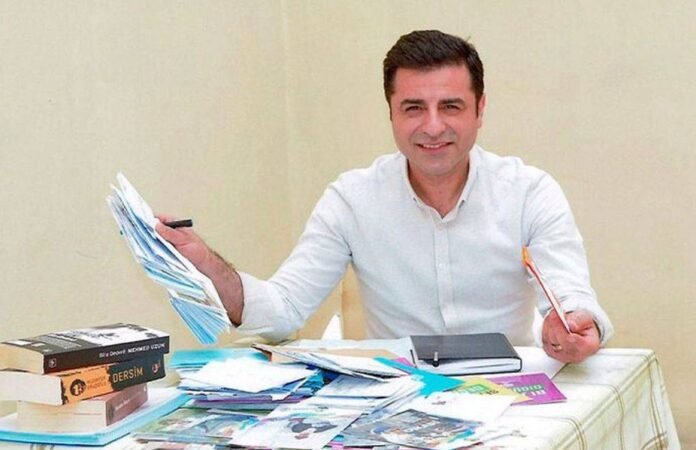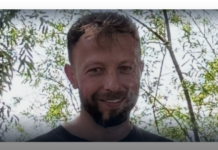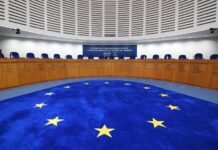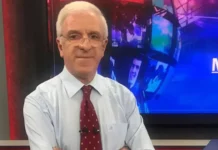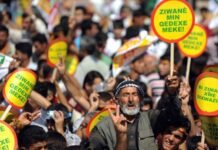Selahattin Demirtaş, the imprisoned former co-chair of Turkey’s main pro-Kurdish political party, has accused the government of neglecting social reconciliation in its ongoing peace efforts with Kurdish groups, saying no meaningful steps have been taken to restore “the feeling of brotherhood” between Kurds and Turks, Turkish Minute reported.
Demirtaş made the remarks in an opinion piece published Friday on the T24 news website in which he described the current peace process as focused solely on the Kurdish militants’ laying down of arms rather than genuine social healing. The article is being widely interpreted as his most pointed criticism yet of how Ankara and his own party, the Peoples’ Equality and Democracy Party (DEM Party), have handled the process.
“The key concept of the process is not weapons, but brotherhood,” Demirtaş wrote from his prison cell in Edirne, where he has been held since 2016 on terrorism-related charges widely viewed as politically motivated. “Weapons must be removed first because they violate the law of brotherhood. Simultaneously, the law and feeling of brotherhood must be restored. Not a single effective, result-oriented step has been taken in this regard.”
Demirtaş’s comments come eight months after the Kurdistan Workers’ Party (PKK) announced its decision to lay down arms following a call by its imprisoned leader, Abdullah Öcalan, for a transition from armed struggle to democratic politics. Since then, the PKK has begun withdrawing its fighters from Turkey to northern Iraq, and a parliamentary commission has been formed to oversee legal and political reforms related to the peace initiative.
President Recep Tayyip Erdoğan has met three times this year with a delegation from the DEM Party to discuss the process, framing it as a historic opportunity to end the four-decade conflict that has killed more than 40,000 people. But Demirtaş’s article suggests growing unease within Kurdish political circles about how the government and political elites have managed the transition.
He said political gestures that could have strengthened national unity — such as symbolic visits, public events and cultural initiatives — had been ignored. In his essay Demirtaş proposed a series of activities designed to build trust between communities, including visits to the graves of prominent Turkish and Kurdish figures, joint Turkish-Kurdish cultural festivals and friendly football matches between regional teams.
He even suggested that young people from Turkey’s westernmost city, Edirne, and its southeastern province of Hakkari could meet at Anıtkabir, the mausoleum of modern Turkey’s founder Mustafa Kemal Atatürk, to read a declaration of brotherhood in Turkish and Kurdish and record it in the visitors’ book.
“These things were not done,” Demirtaş wrote. “Instead, there was plenty of listening, unnecessary slogans, insults and threats. Operations targeting the opposition, especially the Republican People’s Party [CHP], deepened the split. Not a single municipality under trusteeship has been returned to the people. Instead of strengthening Kurdish-Turkish brotherhood, Turkish-Turkish division was added on top of it.”
His reference to operations against the main opposition CHP appears to criticize ongoing legal and police actions against opposition figures following the March arrest of İstanbul Mayor Ekrem İmamoğlu on corruption charges.
Observers said the piece marks a subtle but significant shift in tone from Demirtaş, who in recent months had expressed cautious support for the peace process. Journalist Mehmet Tatlı wrote on social media that the jailed politician appeared to be criticizing not only the government but also the DEM Party for its “sloganeering” and lack of initiative. Tatlı added that Demirtaş’s mention of Anıtkabir for the first time carried symbolic weight, addressing both secular and conservative audiences in an effort to bridge divides.
Reactions to the article were mixed. DEM Party lawmaker Meral Danış Beştaş praised Demirtaş for “speaking the bitter truth” and said the pursuit of peace and brotherhood would continue. But others, including local Kurdish journalist Sinan Aygül, accused him of naivety, arguing that “brotherhood” was a misleading term for a century-long conflict between two distinct national identities.
Demirtaş closed his article by reflecting on his imprisonment, saying he wrote “as a friend of peace and brotherhood” while sharing a cell with Adnan Selçuk Mızraklı, the elected mayor of Diyarbakır who was removed from office in 2019 and replaced with a government-appointed trustee. “Looking at my only friend in my 12-square-meter cell, I write while preserving our hope and keeping our determination to struggle alive,” he said.

